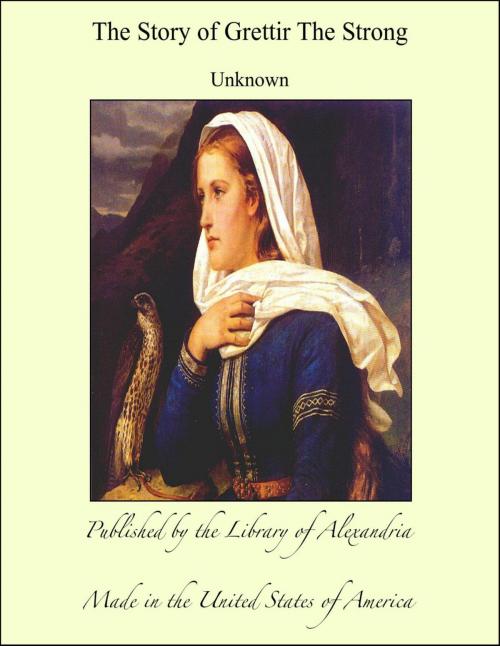The Story of Grettir The Strong
Nonfiction, Religion & Spirituality, New Age, History, Fiction & Literature| Author: | Unknown | ISBN: | 9781465580511 |
| Publisher: | Library of Alexandria | Publication: | March 8, 2015 |
| Imprint: | Language: | English |
| Author: | Unknown |
| ISBN: | 9781465580511 |
| Publisher: | Library of Alexandria |
| Publication: | March 8, 2015 |
| Imprint: | |
| Language: | English |
WE do not feel able to take in hand the wide subject of the Sagas of Iceland within the limits of a Preface; therefore we have only to say that we put forward this volume as the translation of an old story founded on facts, full of dramatic interest, and setting before people's eyes pictures of the life and manners of an interesting race of men near akin to ourselves. Those, to whom the subject is new, we must refer to the translations already made of some other of these works,* and to the notes which accompany them: a few notes at the end of this volume may be of use to students of Saga literature. For the original tale we think little apology is due; that it holds a very high place among the Sagas of Iceland no students of that literature will deny; of these we think it yields only to the story of Njal and his sons, a work in our estimation to be placed beside the few great works of the world. Our Saga is fuller and more complete than the tale of the other great outlaw Gisli; less frightful than the wonderfully characteristic and strange history of Egil, the son of Skallagrim; as personal and dramatic as that of Gunnlaug the Worm-tongue, if it lack the rare sentiment of that beautiful story with more detail and consistency, if with less variety, than the history of Gudrun and her lovers in the Laxdæla; and more a work of art than that, or than the unstrung gems of Eyrbyggja, and the great compilation of Snorri Sturluson, the History of the Kings of Norway. At any rate, we repeat, whatever place among the best Sagas may be given to Grettla* by readers of such things, it must of necessity be held to be one of the best in all ways; nor will those, we hope, of our readers who have not yet turned their attention to the works written in the Icelandic tongue, fail to be moved more or less by the dramatic power and eager interest in human character, shown by our story-teller; we say, we hope, but we are sure that no one of insight will disappoint us in this, when he has once accustomed himself to the unusual, and, if he pleases, barbarous atmosphere of these ancient stories.
WE do not feel able to take in hand the wide subject of the Sagas of Iceland within the limits of a Preface; therefore we have only to say that we put forward this volume as the translation of an old story founded on facts, full of dramatic interest, and setting before people's eyes pictures of the life and manners of an interesting race of men near akin to ourselves. Those, to whom the subject is new, we must refer to the translations already made of some other of these works,* and to the notes which accompany them: a few notes at the end of this volume may be of use to students of Saga literature. For the original tale we think little apology is due; that it holds a very high place among the Sagas of Iceland no students of that literature will deny; of these we think it yields only to the story of Njal and his sons, a work in our estimation to be placed beside the few great works of the world. Our Saga is fuller and more complete than the tale of the other great outlaw Gisli; less frightful than the wonderfully characteristic and strange history of Egil, the son of Skallagrim; as personal and dramatic as that of Gunnlaug the Worm-tongue, if it lack the rare sentiment of that beautiful story with more detail and consistency, if with less variety, than the history of Gudrun and her lovers in the Laxdæla; and more a work of art than that, or than the unstrung gems of Eyrbyggja, and the great compilation of Snorri Sturluson, the History of the Kings of Norway. At any rate, we repeat, whatever place among the best Sagas may be given to Grettla* by readers of such things, it must of necessity be held to be one of the best in all ways; nor will those, we hope, of our readers who have not yet turned their attention to the works written in the Icelandic tongue, fail to be moved more or less by the dramatic power and eager interest in human character, shown by our story-teller; we say, we hope, but we are sure that no one of insight will disappoint us in this, when he has once accustomed himself to the unusual, and, if he pleases, barbarous atmosphere of these ancient stories.















